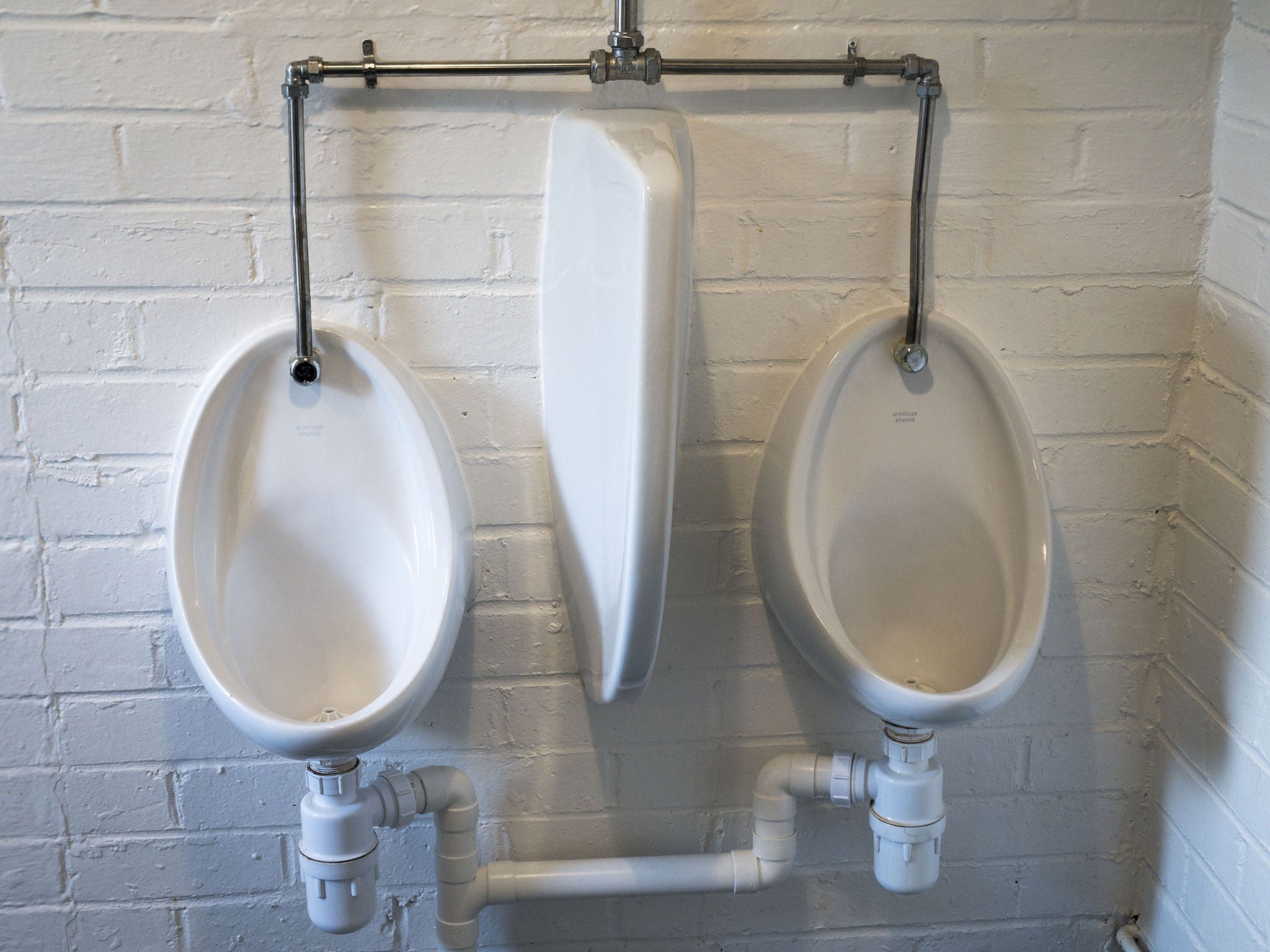Scientists testing samples from urinals to track use of legal highs
New research finds recommend a more targeted, if not exactly fragrant, sampling technique

Your support helps us to tell the story
From reproductive rights to climate change to Big Tech, The Independent is on the ground when the story is developing. Whether it's investigating the financials of Elon Musk's pro-Trump PAC or producing our latest documentary, 'The A Word', which shines a light on the American women fighting for reproductive rights, we know how important it is to parse out the facts from the messaging.
At such a critical moment in US history, we need reporters on the ground. Your donation allows us to keep sending journalists to speak to both sides of the story.
The Independent is trusted by Americans across the entire political spectrum. And unlike many other quality news outlets, we choose not to lock Americans out of our reporting and analysis with paywalls. We believe quality journalism should be available to everyone, paid for by those who can afford it.
Your support makes all the difference.For decades, the war on drugs has been fought on fronts from the jungles of Latin America to the classroom. But now the struggle to understand the use of illegal substances has reached a new low - the nation’s urinals.
Scientists in charge of tracking drug use across Europe, in particular the booming use of so-called “legal highs”, have put forward proposals to use samples from pissoirs in locations such as nightclubs and music festivals to try to work out which illicit substances are being consumed.
A technique which looks for minute traces of established recreational drugs in wastewater taken from the sewage system has been developed to gauge the level of use of better-known narcotics such as cocaine or cannabis in Britain and elsewhere.
But research published by the European Union body which monitors trends in drug consumption has found that tracking the use of “legal highs” - synthetic substances whose chemical formula has been tweaked to avoid automatic classification as a banned substance - requires a more targeted, if not exactly fragrant, sampling technique.
A report by the European Monitoring Centre for Drugs and Drug Addiction (EMCDDA), based in part on a pilot study in London, said the best way to track the popularity of these New Psychoactive Substances (NPS) was to collect samples from areas in which their use might be “expected” such as nightclubs and music festivals. The body now wants routine, anonymised sampling from urinals to be considered as part of its early warning system for drug use across Europe.
Legal highs have risen rapidly in popularity in recent years with the authorities playing a constant game of catch up as shady chemists produce a steady stream of NPS to be marketed in shops and on websites before they are formally banned.
A total of 101 legal highs were detected in 2014 alone, bringing with them warnings of dangerous side-effects.
But despite rising demand, NPS still represent only a small proportion of overall drug use and their shifting formulae mean samples from general wastewater are too dilute to effectively trace them and judge which products are in use.
Liesbeth Vandam, a scientific analyst with EMCDDA, told The Independent: “The market is challenging for a number of reasons, including the increasing number of NPS entering the market, the rapidity of their appearance and the fact that many users are often unaware of the actual substances they are using.
“The report shows that samples from pooled urine collected at nightclubs and music festivals can provide timely data on which new psychoactive substances are being used and where.”
The recommendation by Norwegian researchers follows a study in London which took samples from 12 temporary weekend urinals set up in London’s West End. The project, led by Guy’s and St Thomas’s NHS Trust, found traces of six legal highs as well as seven established recreational drugs, including ketamine and Ecstasy.
The move towards urine sampling comes as Britain prepares to brings into force a new law which seeks to ban NPS in their entirety for the first time.
The Psychoactive Substances Act, which comes into effect on 6 April, seeks to close the loophole exploited by legal highs by effectively banning any substance used to get high with the exception of nicotine, alcohol, caffeine and medications. Government advisers said this week that “poppers”, widely used in the gay community, should also be excluded from the ban.
Join our commenting forum
Join thought-provoking conversations, follow other Independent readers and see their replies
Comments